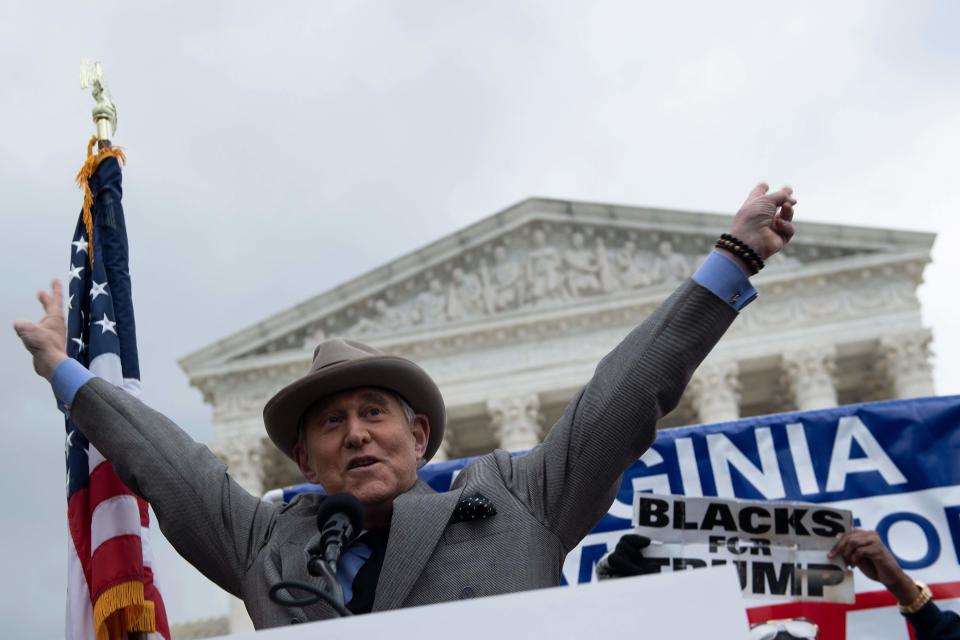Roger Stone grant of clemency seized from Mar-a-Lago. What to know about pardon document.
The document that former President Donald Trump signed to commute the prison sentence of his friend Roger Stone was among the documents the FBI seized at Mar-a-Lago on Monday.
The property receipt filed by the Department of Justice lists an "executive grant of clemency re: Roger Jason Stone, Jr," in addition to top secret and other classified documents that were seized that day.
A Republican political operative for more than three decades, Roger Stone helped Trump get elected in 2016 and became a member of the former president's inner circle. In fallout from special counsel Robert Mueller's investigation into alleged contacts between Trump's campaign and Russia, he was convicted of lying to Congress to protect the president.
At the time of Trump's action, Stone was "confined to his home" and being supervised by a pretrial services office, the grant of clemency said. He was about to report to prison for a 40-month sentence followed by two years' of supervised release and a $20,000 fine when Trump commuted his sentence in 2020.
"The ends of justice do not require the said Roger Jason Stone, Jr. to remain confined to his home or serve the said sentence, and the safety of the community will not be compromised if he is released from home confinement and clemency is granted," the executive grant of clemency, which is available on the Department of Justice's website, said.

Stone's lawyer, Grant Smith, told USA TODAY, "Mr. Stone has no knowledge as to the facts surrounding how his clemency documents appeared on the inventory of items seized from former President Trump’s home at Mar-a-Lago."
Who is Roger Stone?: What to know about the longtime Trump ally and Republican strategist
Railing against "unfair" conviction: Trump grants clemency to Roger Stone
The search warrant and its attachments outline three laws that the Department of Justice was seeking warrants under. One of them, which carries up to three years in prison, makes it illegal for someone who "willfully and unlawfully conceals, removes, mutilates, obliterates, or destroys" certain documents, including court documents.
Michael Ferrara, who worked as a federal prosecutor for the Department of Justice and later in the U.S. Attorney's office for the Southern District of New York, said the clemency document is most likely related to that law, not to the more serious crimes related to obstruction and espionage.
"It looks like they might just be wanting to get back," Ferrara said.
Stone is also a key person at the center of the House Jan. 6 committee's investigation into the attack on the U.S. Capitol. Stone interacted with extremist groups, including receiving security coverage from the Oath Keepers, and taking the Proud Boys oath, declaring himself a "Western chauvinist."
After the attack, Stone lobbied the president to follow something he called the "Stone Plan." That document encouraged Trump to preemptively pardon prominent Republican lawmakers, “the America First movement,” and Stone himself for crimes related to attempting to overturn the 2020 election.
Contributing: Anna Kaufman
This article originally appeared on USA TODAY: What is clemency? Roger Stone’s pardon document seized from Mar-a-Lago

 Yahoo Movies
Yahoo Movies 
